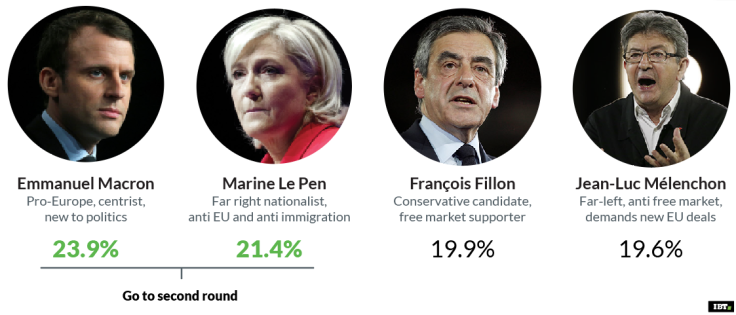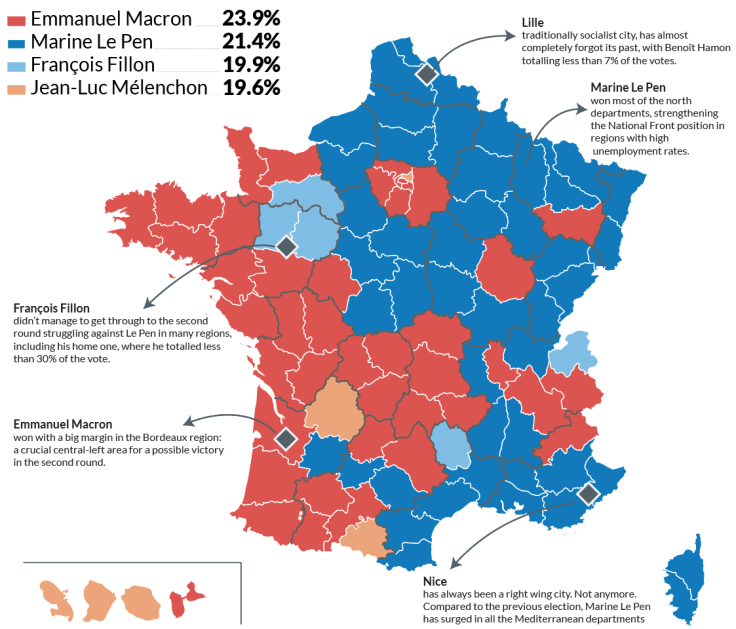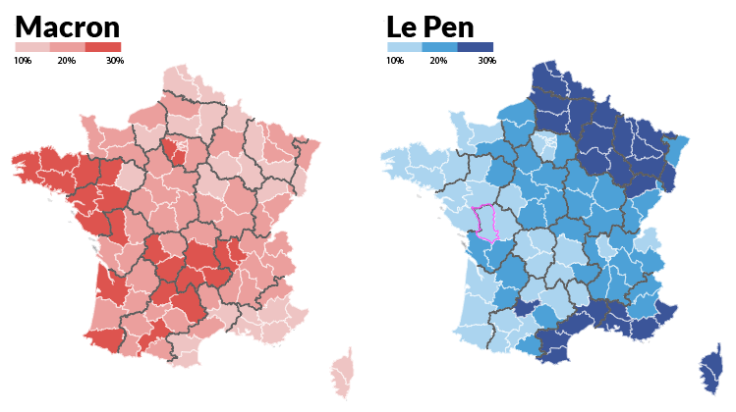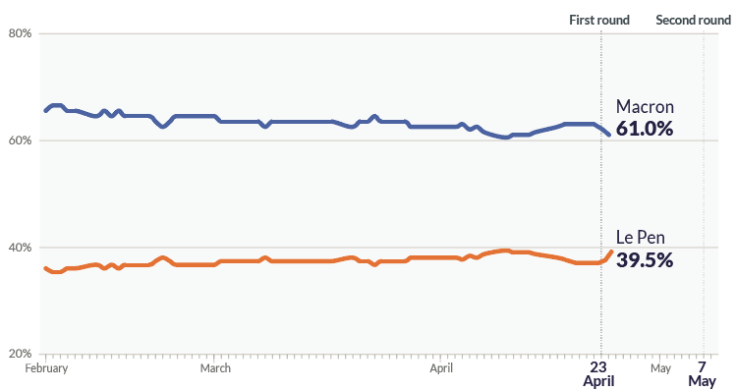Macron vs Le Pen: What the polls say
What data tells us about the first round of the French Election.

Emmanuel Macron and Marine Le Pen have taken the top two spots in the first round of the French presidential election. This marks the first time since 1958 that the two main candidates for the presidency are from traditionally non-mainstream political parties.

The geography of the first round
Both Macron and Le Pen will face each other on 7 May starting from radically different positions, and with a clearly defined electoral base.
This map shows the candidate who won the highest number of votes for each department in France.
Le Pen has taken vast areas of the country, especially on the eastern border of France. The National Front beat expectations in the French Riviera, winning almost all the departments. In the north, Lille, traditionally a socialist city, has moved to the more far-left Mélenchon, humiliating the socialist Benoît Hamon with less than 8% of the vote.
Macron, meanwhile, has taken most of west France, in regions predominantly right-wing but disillusioned by mainstream parties.

Macron vs Le Pen: where they won
These more detailed maps show the composition of the Macron and Le Pen voters.
The National Front candidate won the areas she campaigned most decisively in during recent months. These regions are also the ones that have the highest immigration fears and rising unemployment: two key battlegrounds for Le Pen.
Macron's En Marche! has, instead, won in economically dynamic regions and in large cities concentrated in the centre-west of the country, like Paris and Bordeaux. In these areas, Macron's pro-EU and pro-business positions have helped him win the trust of the more progressive French population, including the young and those with a higher education.

Second round: the last step
The French electoral system dictates that unless one of the candidates receives 50% of the votes in the first poll - which is usually an impossibility given the large number of candidates - the two with the most votes will face each other in a second, decisive round on 7 May.
Since the beginning of the presidential campaign, pollsters have always given Macron a clear advantage over Le Pen. Will he be able to stay in front until 7 May?

© Copyright IBTimes 2025. All rights reserved.






















